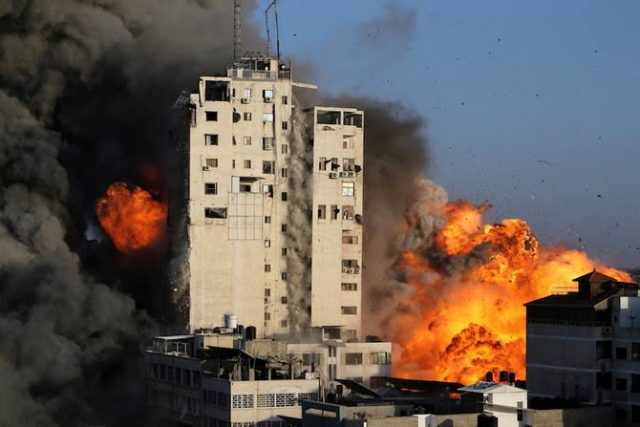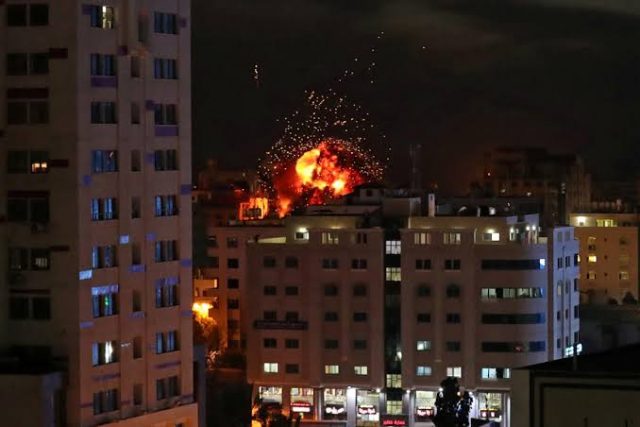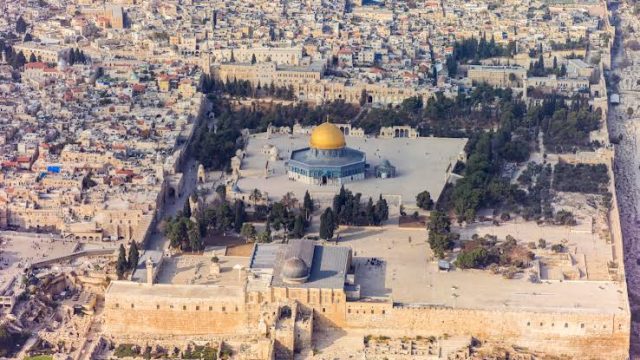You might have heard of the recent Israel-Palestine conflict going on right now. An eruption of unrest that began a month ago has resulted in some of the worst violence in years between Israel and Palestine. The tension between Israelis and Palestinians over Jerusalem is at the heart of the violence that has claimed scores of lives. This is because Jerusalem is the home of major religious sites sacred to Christians, Jews, and Muslims. It was the scene of violent conflicts between Jews and Arabs for a century. Today, it is still one of the most contested cities on the planet.
The city has been on alert for several weeks as Palestinians were outraged by the closure of a popular square at the start of Ramadan. Also, it appears that the long-legal battle to evict seven Palestinian families from their homes in East Jerusalem is another key reason behind this unrest and violence.

Today, the death toll has risen to 83 people including women and children, and over 480 people are wounded. Therefore, here are some of the factors that set off the latest round of violence, as both sides appear to be locked in a long-running battle.
Capital of Two Nations

Israel considers Jerusalem its “united and eternal” capital. During the 1967 Middle East war, Israel captured East Jerusalem which includes the Old City along with the West Bank and Gaza Strip. However, Palestinians want these lands because they believe it’s rightly theirs; with East Jerusalem as the capital of their future state. As a result, the fate of East Jerusalem is one of the most troubling issues in the peace process, which has stalled for more than a decade.
Jerusalem Eviction Battle

The recent clashes began at the beginning of Ramadan when Israeli police set up a checkpoint outside the Damascus Gate in the Old City. This is a popular gathering place after the evening prayer during Ramadan where Muslims fast from dawn to dusk. Subsequently, the Israeli police remove the barriers. However, protests then escalated over the threat to evacuate dozens of Palestinian families from the Sheikh Jarrah neighborhood of East Jerusalem.
The families have been in a long court battle with Jewish settlers seeking to acquire property in a crowded Palestinian neighborhood outside the Old City. As a result, the families’ plights have attracted global attention even though Israel portrays it as a private real-estate dispute.
Discriminatory Policies
Another key factor behind the unrest and violence is the discriminatory policies. Jews born in East Jerusalem are Israeli citizens. However, Palestinians in East Jerusalem are only granted permanent residency that can be revoked if they live outside the city for long periods. Also, most Palestinian doesn’t bother with citizenship application because it’s a long and uncertain process, and they don’t recognize Israeli control.
Furthermore, Israel also built a Jewish settlement in East Jerusalem, inhabited by about 220,000 people. Consequently, it has severely limited the growth of Palestinian neighborhoods, resulting in the unauthorized construction of thousands of overcrowded homes at risk of demolition.
Jerusalem’s Holy Hilltop

The hill in the middle of the Old City of Jerusalem is known to Jews around the world as Temple Mount (the most sacred place in Judaism) and to Muslims worldwide as The Noble Sanctuary. It was home to the ancient Jewish temple. However, there are now two Islamic holy places there – the Dome of the Rock and the Al-Aqsa Mosque.
In recent years, groups of religious and nationalist Jews accompanied by the police have prayed in greater numbers, in contravention of the rules enacted by the religious authorities of Israel, Jordan, and Islam after 1967. As a result, Palestinians consider the frequent Jewish visits and prayer attempt to be provocative, and it often lead to more serious scuffles and violence. This is because they fear that Israel will eventually take over the site or partition it.
Bottomline
Everything about war and violence is wrong. The conflicts between Israel and Palestine (which has been going on for years) have raised huge concerns.
It’s important for the United Nations to step in and mediate before the situation escalates further. Also, they must work hard to heal the deep-seated division between both nations to quell further crises.





